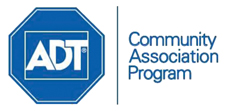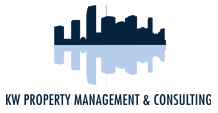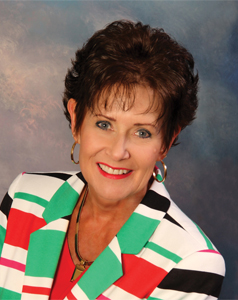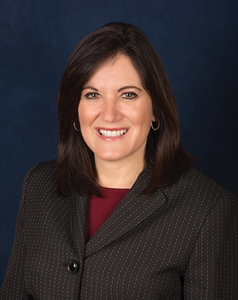
FCAP Community
Published March 2019
Florida Community Association Professionals’ (FCAP) training is offered on two levels. Level one consists of courses meeting Florida’s continuing education requirements for CAMs, and level two is the Florida Advanced CAM Studies (FACS) course. For further information about the more than 50 online continuing education classes available or to pursue the Certified Florida Community Association Manager (CFCAM) designation, please visit www.fcapgroup.com/membership/education-training/.
Because You Asked
By Betsy Barbieux, CAM, CFCAM
Betsy,
We are having workshops on cooperative annual meetings and elections, and a question has arisen, with shareholders having different opinions on this situation. A board member is elected at the annual meeting to a two-year seat. The board member decides it’s not for him three months in and resigns. The board appoints a new member to fill the seat. Here’s the debate: Side A says the new member is only a member until the next election and has to run again because he was appointed in between elections. Side B says he was appointed until the end of unfulfilled term and sits for the remaining 21 months of the term. Which side is correct? -Jackie
Jackie,
A board member who is appointed to fill a vacancy serves the full length of that unexpired term. Here is the statute:
Section 719.106(1)(c)6. Unless otherwise provided in the bylaws, a vacancy occurring on the board before the expiration of a term may be filled by the affirmative vote of the majority of the remaining directors, even if the remaining directors constitute less than a quorum, or by the sole remaining director. In the alternative, a board may hold an election to fill the vacancy, in which case the election procedures must conform to the requirements of subparagraph 1. unless the association has opted out of the statutory election process, in which case the bylaws of the association control. Unless otherwise provided in the bylaws, a board member appointed or elected under this subparagraph shall fill the vacancy for the unexpired term of the seat being filled. Filling vacancies created by recall is governed by paragraph (f) and rules adopted by the division. -Betsy
Betsy,
I was wondering if there is a legal requirement based on revenue for an association to use a licensed CAM as opposed to being self-managed. I keep feeling like there is, but I’m not sure. -Lori
Lori,
No, there is never a requirement that an association has to hire a CAM. The licensing requirement is on the person who is hired. If there are more than 10 units or the budget is more than $100,000, the person who is being paid to do even one of a dozen tasks must have a CAM license. -Betsy
Betsy,
Our annual meeting was rescheduled for technical reasons. The new meeting is at a time when I’ll be out of the country. I’m a board member. Can there be a delay of a condominium board of directors organizational meeting for up to four days beyond the annual meeting?
I’m confused because Chapter 718 says board of administration meetings can be called in two days and Chapter 617.0205 says three days notice for the board’s organizational meeting.
Also, what is the difference between an organizational meeting, a board meeting,and a board of administration meeting? -Ralph
Ralph,
In looking at Chapters 617, 718, or the Florida Administrative Code Rules, I find no legislation on when the organizational meeting is to be held.
I have seen some documents that state the board’s organizational meeting is to be held within __X__ days of the owners’ annual meeting and election, so be sure to check your bylaws.
The terms “board of directors” and “board of administration” are synonymous. The legislators simply cannot make up their mind what to call our boards.
Condominium boards of directors’ meetings follow the notice posting requirements in Chapter 718, which is 48 hours posting of the notice with clearly designated agenda items. This is true whether it is a regular board meeting, special board meeting, or organizational meeting.
Posting the notice has nothing to do with a time frame within which you have to hold a board organizational meeting after the annual meeting. It simply refers to the notice posting requirement.
Again, check your bylaws to see if there is a time frame within which the board has to schedule its organizational meeting after the annual meeting and election. I’ve seen some documents that have a time frame.
The organizational meeting mentioned in Chapter 617 does not relate to us as Chapter 718 supersedes. -Betsy
Betsy,
Where in Chapter 718 does it permit a unit owner to place an item on the agenda of the annual meeting or any board meeting? -Randy
Randy,
A board meeting is for the board, not for the owners. The statute does give the owners the right to attend, listen, and make comments to designated agenda items only based on rules and procedures adopted by the board.
Agenda items are usually determined by the manager and board members and will deal with contracts, financials, violations, and any other corporate business. Board meetings are not a Q and A session or a reporting time to owners. It is a time to conduct board business.
Board members should sit in a horseshoe or at a round table facing each other. They should not be sitting panel style as if they are speaking to any owners present. They should be speaking to themselves eyeball to eyeball.
The statute does allow owners to force an item on to the boards’ agenda in Section 718.112(2)(c)(1) using a petition. However, that statute does not require the board to take any action requested by the petition. It only requires the board to listen to owners’ comments.
With regard to putting items on the annual meeting agenda, those items would be limited to amendments that owners need to vote on.
I have found that other things owners want to talk about are violations and maintenance complaints, neither of which can be addressed at an owners’ meeting and have no place on the agenda.
Perhaps some communities need to have other types of informational coffees, luncheons, or teas where they can have townhall-type discussions. The boards do not need to be present at these meetings nor coordinate them. But owners have the right to peacefully assemble and can certainly meet together to discuss issues they’re concerned with. I still believe these issues revolve around violations and maintenance and should be addressed and directed toward management. If management cannot resolve the issues, the manager takes the items to the board for a decision. -Betsy
CAM to CAM
Marcy L. Kravit, CMCA, AMS, PCAM, CFCAM
AKAM ON-SITE Managing Director
FCAP Education and Training Coordinator
Suggestions for Management when Seasonal Residents Vacate the Property
Question: What tips can you provide to my seasonal residents/snowbirds/winter visitors prior to vacating their units after the season?
Answer:
According to Florida Realtor Magazine, by 2025 one in every five people living in Florida will be elderly, and many have become snowbirds. That estimation is hinged on the fact that baby boomers are starting to reach retirement age. Baby boomers are those born between the years of 1946 and 1964 who head south each year to reap the benefits of a seasonal migration.
Here are some apartment protection guidelines for when your condominium residents vacate their seasonal home.
Before You Leave. . .
- Refrigerator: Empty the refrigerator of all perishable items (meats, eggs, milk, etc.). If residents are going to be away for more than one month, shut off the refrigerator completely from the circuit breaker panel and leave the refrigerator and freezer doors open. If the resident prefers to keep the refrigerator on, set it at its warmest setting. If residents prefer to keep their refrigerator off, they should clean the interior with a solution of one tablespoon of baking soda in one quart of water, dry thoroughly, and leave the doors open. Turn off the circuit breaker to the refrigerator. Remove all food from the freezer and refrigerator and leave the door(s) propped open.
- Icemaker: If the refrigerator has an automatic ice maker, switch it to the “off” position.
- Food: Flour, sugars, and salt should be stored in tightly sealed containers. Dispose of cereals, crackers, and pastas to avoid household pests. Fresh and perishable foods should be eaten or discarded. Give away or discard opened bottles and jars of salad dressings, condiments, and other perishable items. Replacing these items will cost less than paying to keep your refrigerator running during the two to three months you are gone.
- Cable or satellite boxes: Unplug or turn off cable or satellite to avoid paying for energy you aren’t using. Contact the cable/satellite company to inform them.
- Water heater: Turn off the circuit breaker to the water heater.
- Small appliances and electronics: Unplug small appliances. Leave appliances unplugged while you are gone to protect them from electrical-current surges during storms.
- Water Valves: Turn off the main water valve unless you have an automatic fire-sprinkler system. If you do have an automatic fire-sprinkler system, turn off the water valves to your washing machine, kitchen and bathroom sinks, dishwasher, and toilets.
- Instant Hot Water: If you have an instant hot water dispenser or filter under your kitchen sink, unplug it or turn it off at the electrical circuit breaker.
- Dishwasher: Empty it and leave the door open.
- Washing machine/Toilets: Leave the lid open to the washing machine. Turn off the water supply valves to all fixtures (sinks, washing machine, toilets, etc.).
- Air-conditioning: Florida is warm and humid. Set the unit air-conditioning thermostat at approximately 70–75 degrees. If the unit has a humidistat, set the air-conditioning thermostat and humidistat at 70 degrees. Pests and mildew and bacteria will live in humid conditions. Residents should not turn off their AC! They should ensure the drain pan is clear prior to vacating their unit and sign up for a preventative maintenance plan.
- Change AC filter. If it is washable, then wash it. An accumulation of dirt plus the summer heat and humidity can lead to mildew and mold growth, which can spread throughout the home.
- Thermostats: For programmable or smart thermostats, set AC to run at 72 degrees for just two hours each morning before sunrise and at 75 degrees for the remainder of the time. Change batteries on digital thermostats. For non-programmable thermostats, it is suggested you set AC at 75 degrees.
- Closets/Cabinets: Open closets and cabinet doors just to keep fresh air moving in and out of those areas.
- Management Office/Keys: If the resident has a housekeeper, personal representative, or anyone else taking care of the apartment in their absence, the resident needs to notify the office and provide them with keys to the apartment.
- Ensure that the office has the proper key to the apartment door and vehicle in the event of emergencies or flooding in the garage area. The key will only be used in the event of an emergency or maintenance inspections or repairs.
- Leave a key to the resident’s vehicle in the unit next to the remote control for the roll up shutters in the event of a hurricane or emergency and in case management needs to relocate the vehicle.
- Ideally, residents can leave a key with someone they trust—a relative, friend, or neighbor—who can enter the home once or twice a month to check on appliances, sinks, air-conditioning systems ,and other possible sources of problems.
- Emergency Contact Number: Please make sure that the office has an emergency contact number for the resident while they are away.
- Mail: Fill out a Mail Forward Form from the Post Office or visit https://www.usps.com/manage/forward.htm if you would like your mail forwarded to an alternate address.Whether you’re making a long-term move, or you’ll just be at a new address for just a few months, USPS® mail and package forwarding services can send your mail to you.
- Newspaper: Stop or redirect newspaper delivery.
- Hurricane Preparedness: As a precautionary measure to prevent water seepage during a tropical storm, the association recommends that towels be placed in all door tracks to absorb water.
- Hurricane Storm Shutters: Closing and opening storm shutters may be the sole responsibility of the unit owner and/or his authorized representative to do so. Make arrangements and notify the office.
- House Sitter/Representative: The unit owners should seek a reliable house sitter, someone who can visit the unit while you are away to check on possible problems that pop up, such as plumbing leaks and storm damage.
- Doors & Windows: Residents should close drapes and blinds. Make sure all doors and windows are locked and sealed.
- Smoke Detectors: Replace smoke detector batteries.
- Update Mailing & Email Addresses for Association Voting and Correspondence
*These tips are intended as guidelines to help residents save energy, prevent mold growth, and avoid issues. However, because each situation is unique, we cannot guarantee any particular result will be achieved by following these tips, and each association should draft and customize site-specific guidelines.
Credits: FPL—Tips for Snowbirds—http://www.fplblog.com/top-tips-for-snowbirds/
Recycle Your Landscape
By Lynn Barber
I’m sure you have all heard about the three Rs. No, I mean reduce, reuse, and recycle. Well, we have added a fourth: repeat. Anything worth doing is worth repeating! The four Rs will save you time, money, and perspiration.
Let’s start with reduce. You can reduce water consumption by purchasing drought-tolerant plants. To determine what plants fall into that category, please see the University of Florida’s Florida-Friendly LandscapingTM Guide to Plant Selection and Landscape Design, which can be viewed at ffl.ifas.ufl.edu/pdf/FYN_Plant_Selection_Guide_2015.pdf. This Guide provides plant and site requirements, including mature height, spread, pH, soil texture and moisture, sun or shade, native or non-native, wildlife attracted, and much more. If you hydrozone your plants, meaning you group plants by watering needs, you can decrease the number of plants suffering/dying from over- or under-watering. You can decrease the amount of money you spend on plants by propagating your plants or sharing with friends and neighbors.
Submitted by University of Florida/IFAS Extension, Hillsborough County
FCAP Member’s Spotlight
 ADT Community Association Program
ADT Community Association Program
ADT Community Association Program is the first choice in security for community associations and the nation’s premier provider of electronic security services, providing world-class customer care and service to more than 100,000 residences through bulk agreements. This includes 24/7 monitoring by our own state-of-the-art monitoring centers and “concierge level” customer care and service provided by our exclusive community association service center. Our technicians are our own highly-trained employees. They are vetted, FASA/BASA-certified security professionals.
The ADT brand is among the most well-known and trusted brands in the security industry today and is a full-service provider for intrusion, fire, video surveillance, access control, Pulse® home automation, interactive services, video, and two-way voice systems. ADT has 143 years of experience.
For more information on ADT, visit www.adt.com/community-associations.
Whether it’s representing you in court, administrative proceedings, attending your meetings, speaking to you on the radio, or teaching you in our classes, Glazer and Sachs P.A. has been representing community associations and their owners throughout Florida since 1994. Our goal is not just to represent you but to educate you along the way. Our devotion is in the numbers, as we have taught our classes to more than 15,000 Flori-dians throughout the state, spoken to thousands of you on the Condo Craze and HOAs radio show for the past ten years, and written our blog every Monday morning for nearly a decade. Whether it’s contract review, document amendments, collection of unpaid assessments, civil and construction litigation, or arbitration or mediation, we are honored to represent you.
For more information on Glazer & Sachs, call (954) 983-1112 or visit www.florida-association-law.com.
 KW Property Management & Consulting
KW Property Management & Consulting
KW Property Management & Consulting provides full-scale property management services to homeowner associations and condominium boards. KWPMC delivers operational precision, hospitality with a personal touch, outstanding financial reporting and accounting controls, and flexible and efficient technology solutions—all distinguished by a dedicated and committed staff that aims to enhance the experience of every association we serve. We’re privately owned with a hands-on approach that involves our founding partners and executive team assigned and engaged with each and every property. Our well-trained staff delivers elite service to our growing list of prestigious properties.
We take great pride in building lasting relationships with associations and boards that share our commitment to excellence. “We Don’t Just Manage, We Enhance”
For more information on KW Property Management & Consulting, call (954) 815-8321 or visit www.kwpmc.com.





